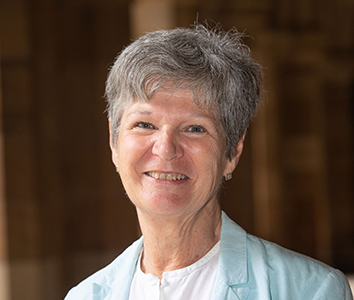Webinar synopsis
Organizations are traditionally construed as substantial social entities with fixed identities, stable structures and specifiable properties. This paradigm of thought is underpinned by a metaphysics of “being”. From this metaphysical worldview, organizations are concrete social entities and organizational change is transient, episodic and epiphenomenal; “organizations” do change, but change is not intrinsic to organizational life. Furthermore, organizational change requires deliberate, planned, intervention; all change is “imposed” and “owned”. Newton’s First Law of Motion is the paradigm case for understanding how such change happens and Kurt Lewin’s model of change is the quintessential exemplar of this planned approach to organizational change.
In contrast, a metaphysics of “becoming” posits that the actual world is ultimately a process of flux and change so that the “being” of an entity is constituted by its “becoming”. Change is inexorable, “unowned” and always already going on regardless of human intentions. “Things”, “events” and stable states are no more than convenient conceptual arrestations. “Organizations” describe “bundles” of relatively stabilized habituated practices that are themselves congealed aggregations of local coping actions. Practices ensure a patterned consistency of actions necessary for stabilizing and creating “workable” organizational orders out of fluxing ultimate reality. From a processual worldview, infinitesimal organizational change is happening all the time via ongoing coping adjustments made at the coal-face of the organization-environment interface. Consequently, managing change entails, not so much about the deliberate imposition of an external planned order, but rather the “relaxing” of established organizational practices to allow for more flexible localised adaptive/exaptative action. This greater emphasis on sensitive attunement to unfolding local circumstances and in-situ wayfinding reflects an organizational becoming approach to dealing with and thriving in an uncertain, disruptive and unstable operating environment.
This event is part of the annual BAM Academic Affairs of Conference and Capacity Building (AACCB) webinar series:
The AACCB webinars will help attendees to gain greater clarity about some contemporary issues, and how they link in with other related management research areas. Delivered by senior academics engaged in cutting edge research, the topics to be covered in the series will provide attendees with scholarly insight into what constitutes meaningful scholarship, and the making of optimal theoretical and methodological choices when crafting high impact manuscripts for publication. There will also be opportunities to discuss ways to get the best out of the publication process, crafting a careers, and networking with fellow academics, and other management researchers, all in one place.
___________________________________________________________________________
Provider Information
BAM Council's Sub-Committee of Academic Affairs of Conference and Capacity Building (AACCB)
__________________________________________________________________________
Who Should Attend?
The event speaks to Sections A1 and A2 as detailed in the BAM Framework
___________________________________________________________________________
Speakers
___________________________________________________________________________
Chaired by
________________________________________________________________
Benefits of attending
- Learn about new frontiers in management research methods
- Gain greater clarity on your methodological choices
- Network with other doctoral students and academics all in one place
__________________________________________________________________________
Contact
Please contact the BAM Office at [email protected] with any queries.
___________________________________________________________________________
Event Fee
BAM Members: Free
Non-Members: £25
Non-Members, Students: £15
If you are booking multiple paid events as a Non-Member, it may be cheaper for you to purchase a BAM Membership as nearly all BAM Events are free or at a discounted rate for Members.
For more information, please visit BAM Membership
___________________________________________________________________________
Registration closes on 6th of February 2023 at 23:59 UK time



